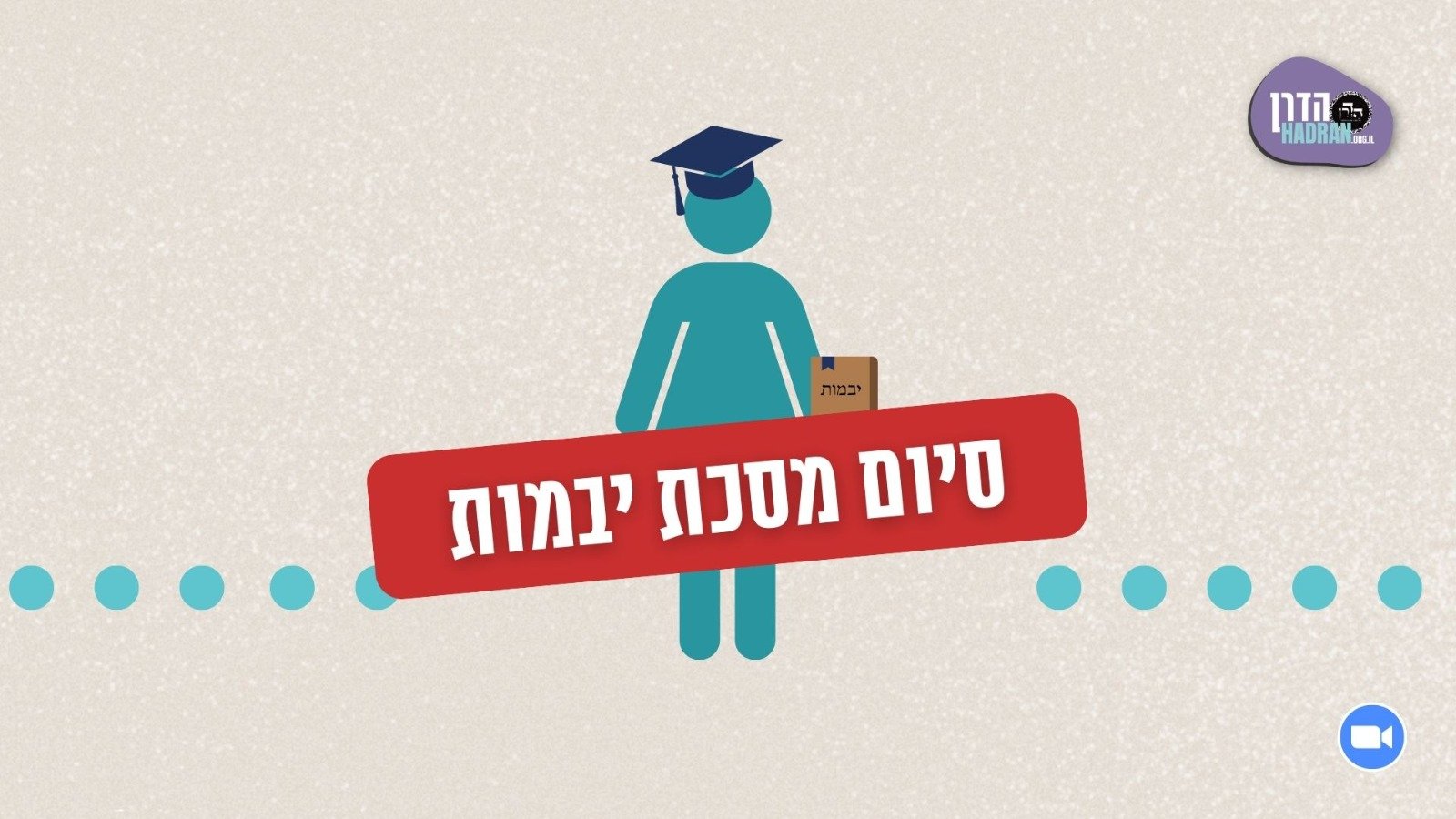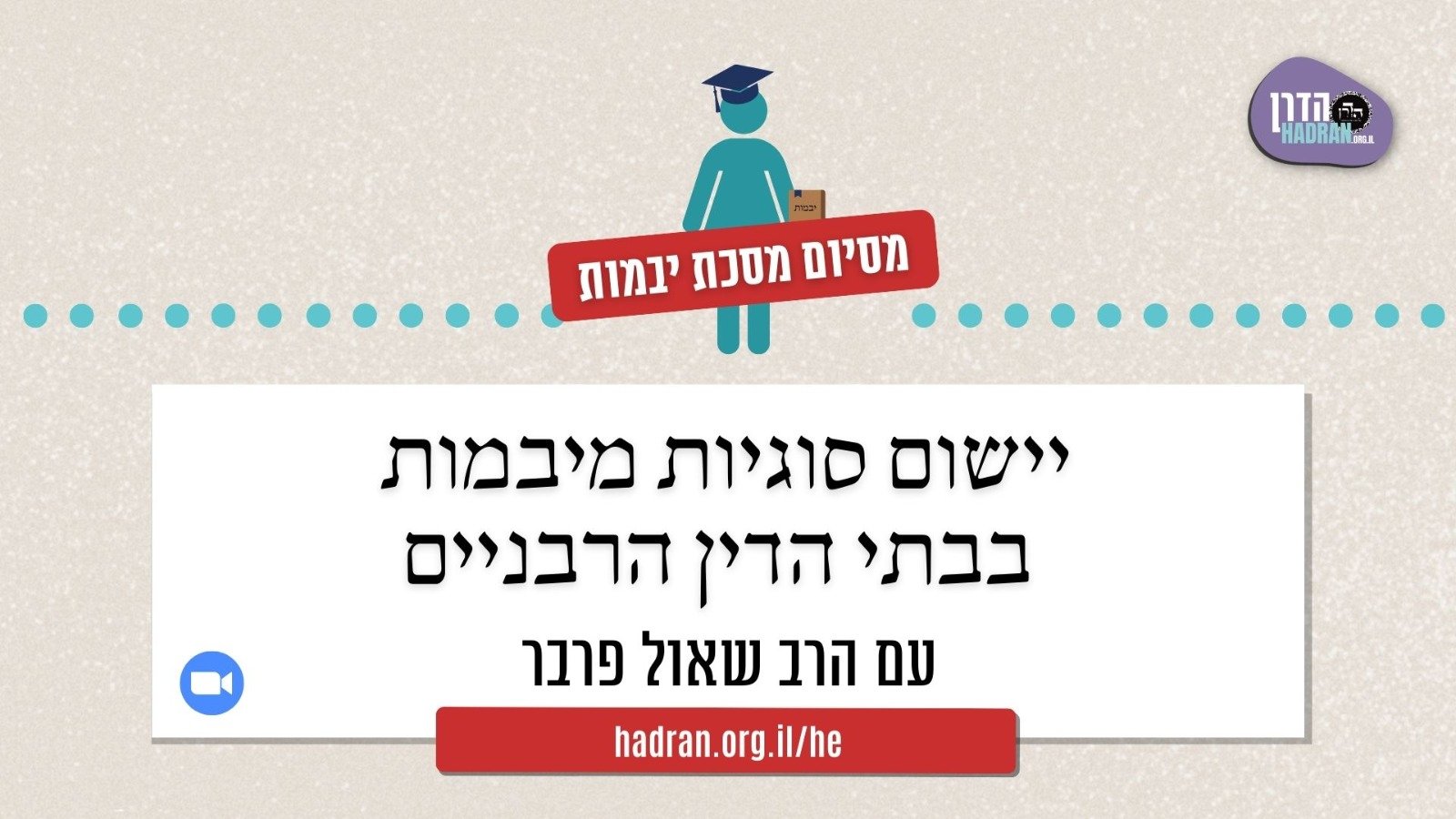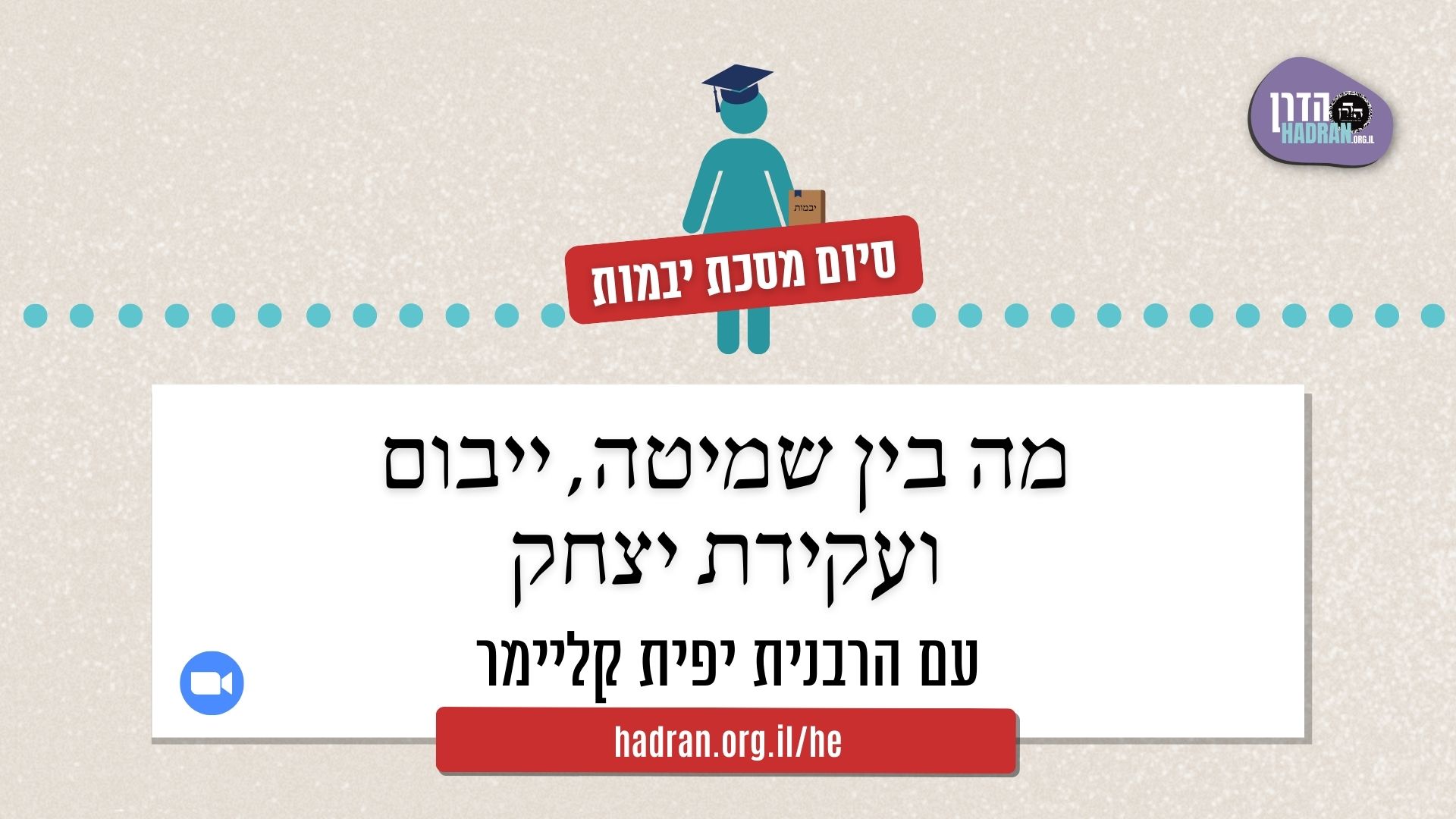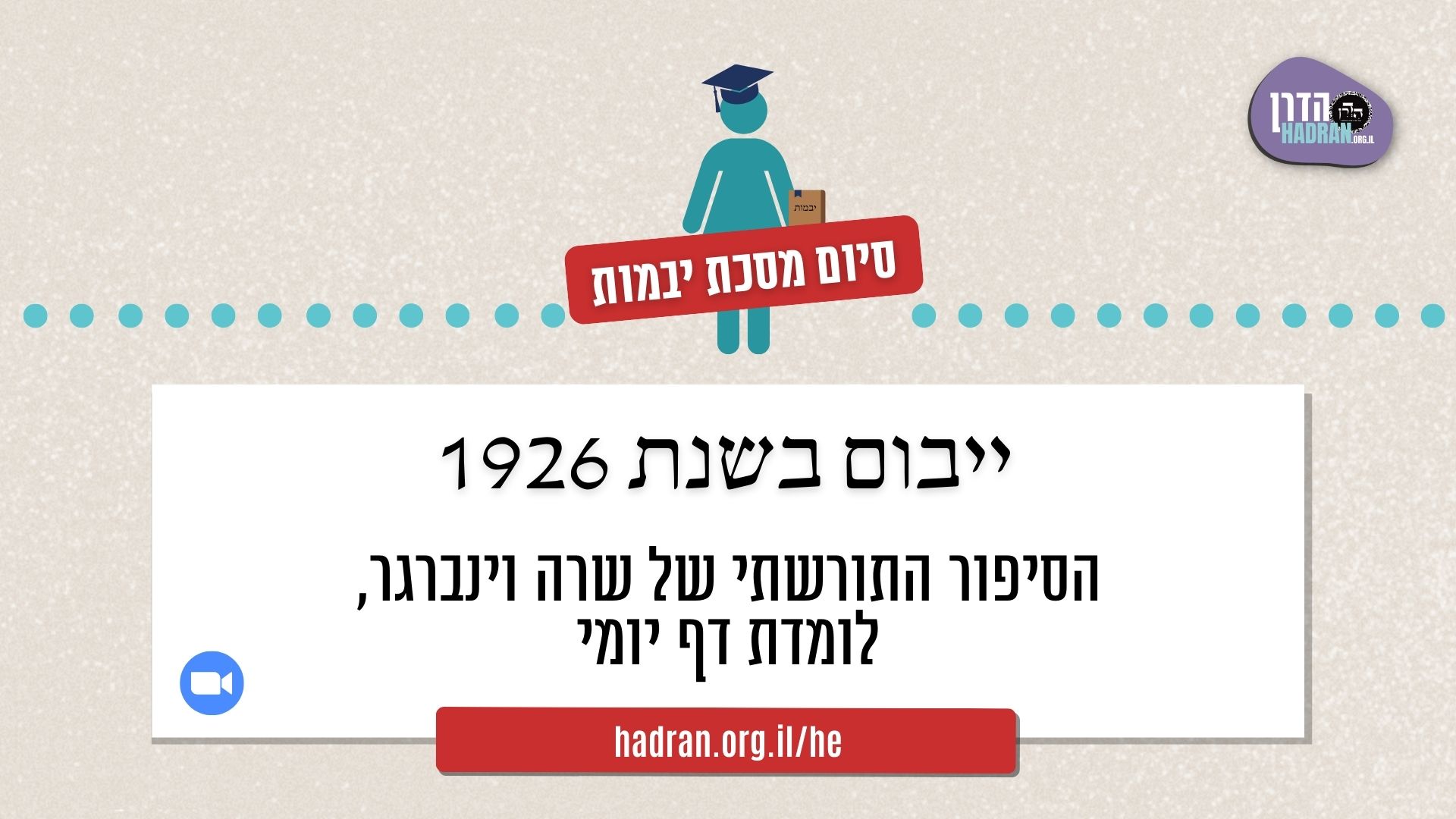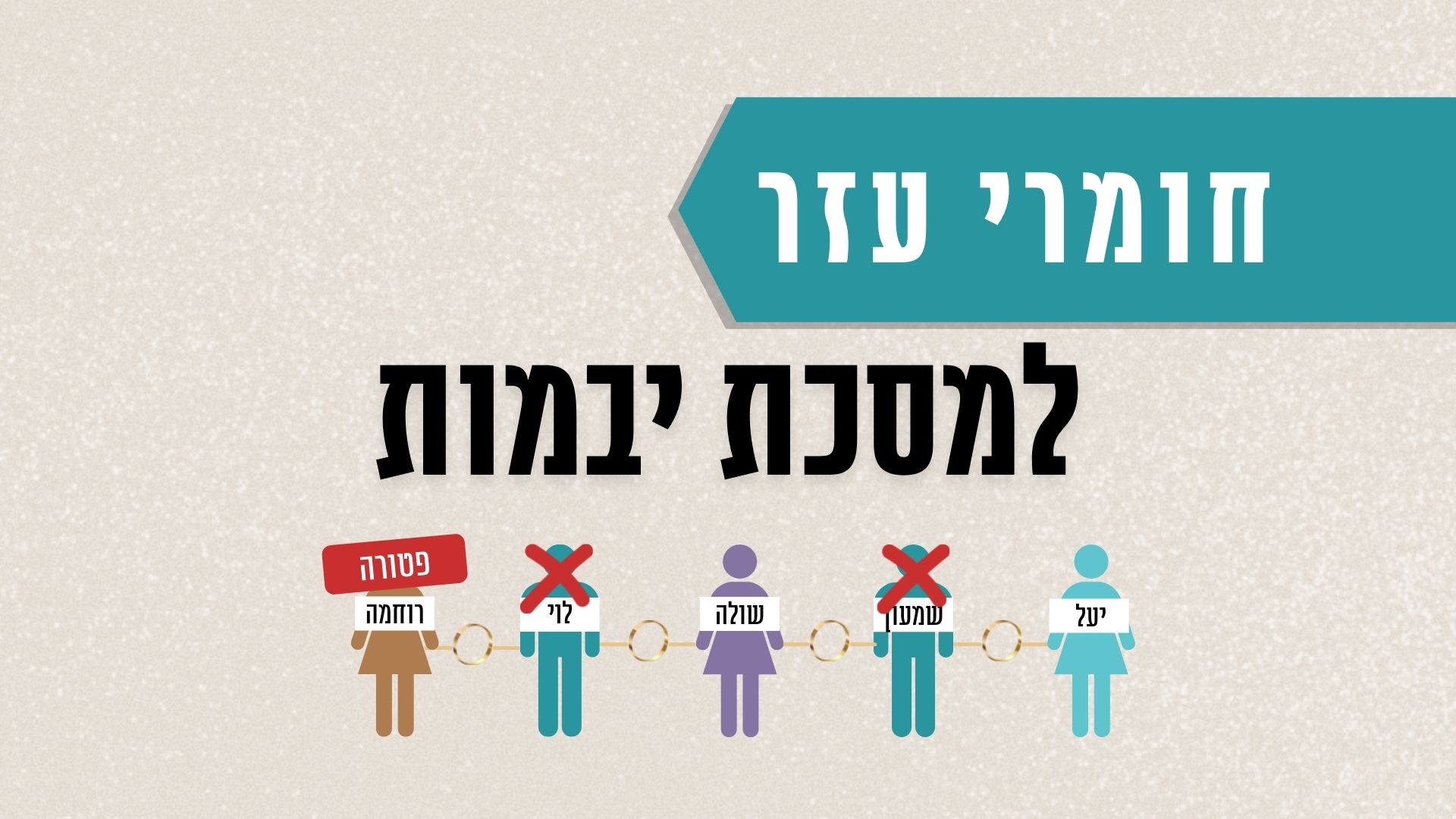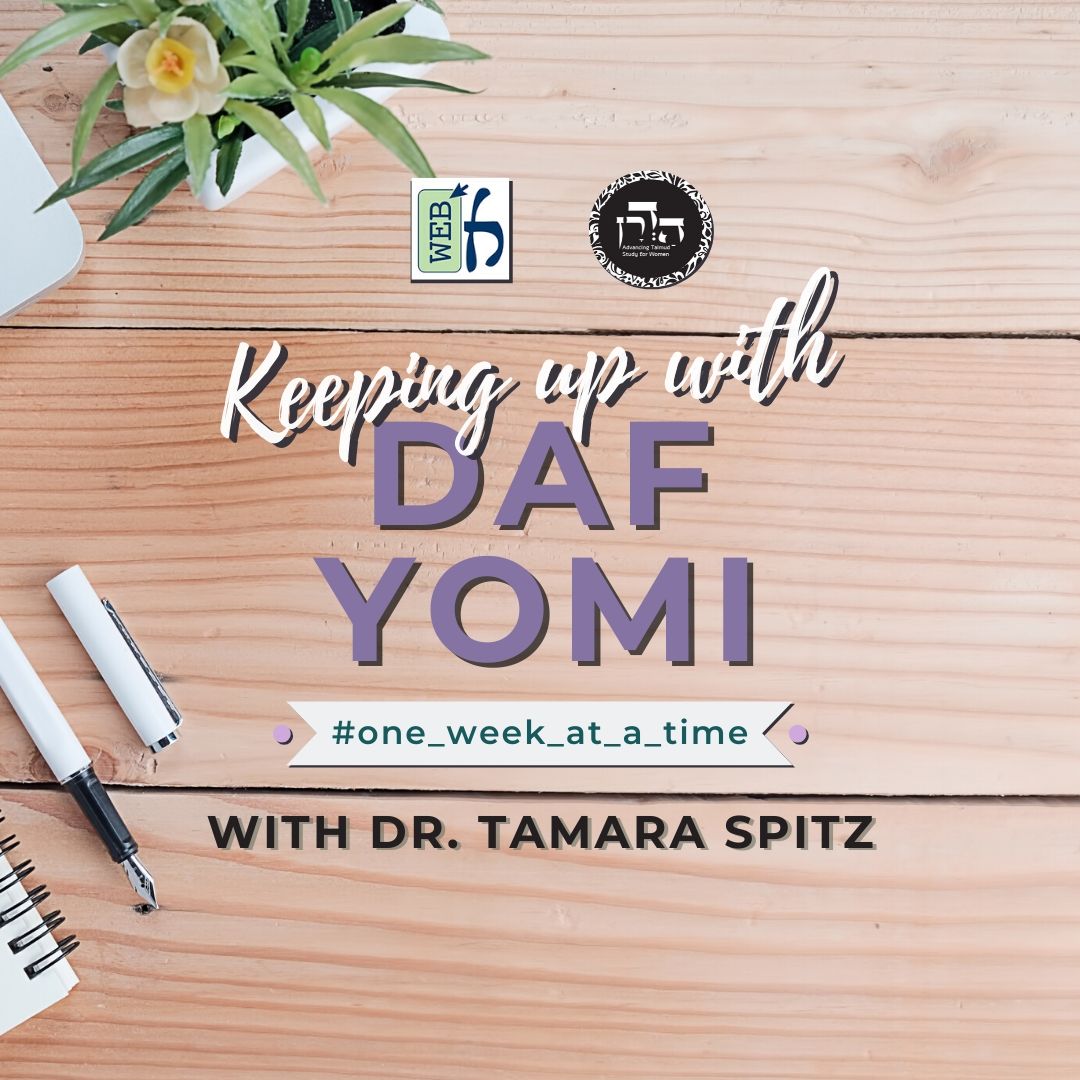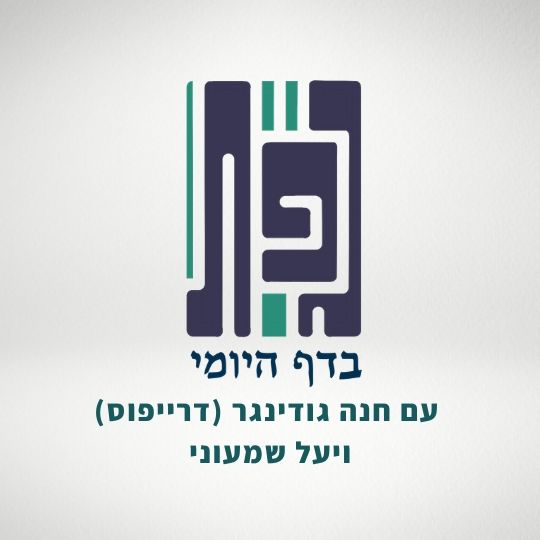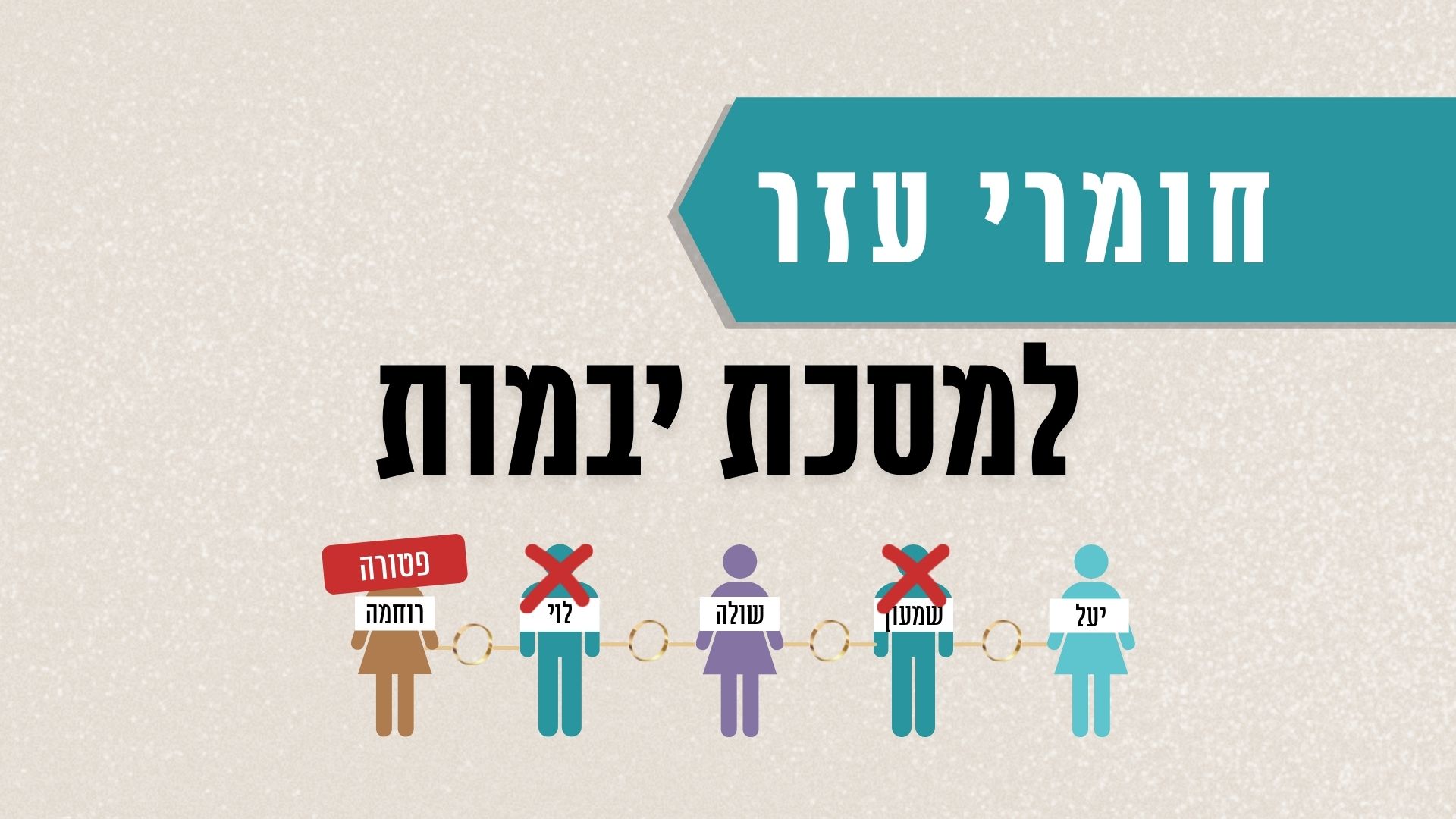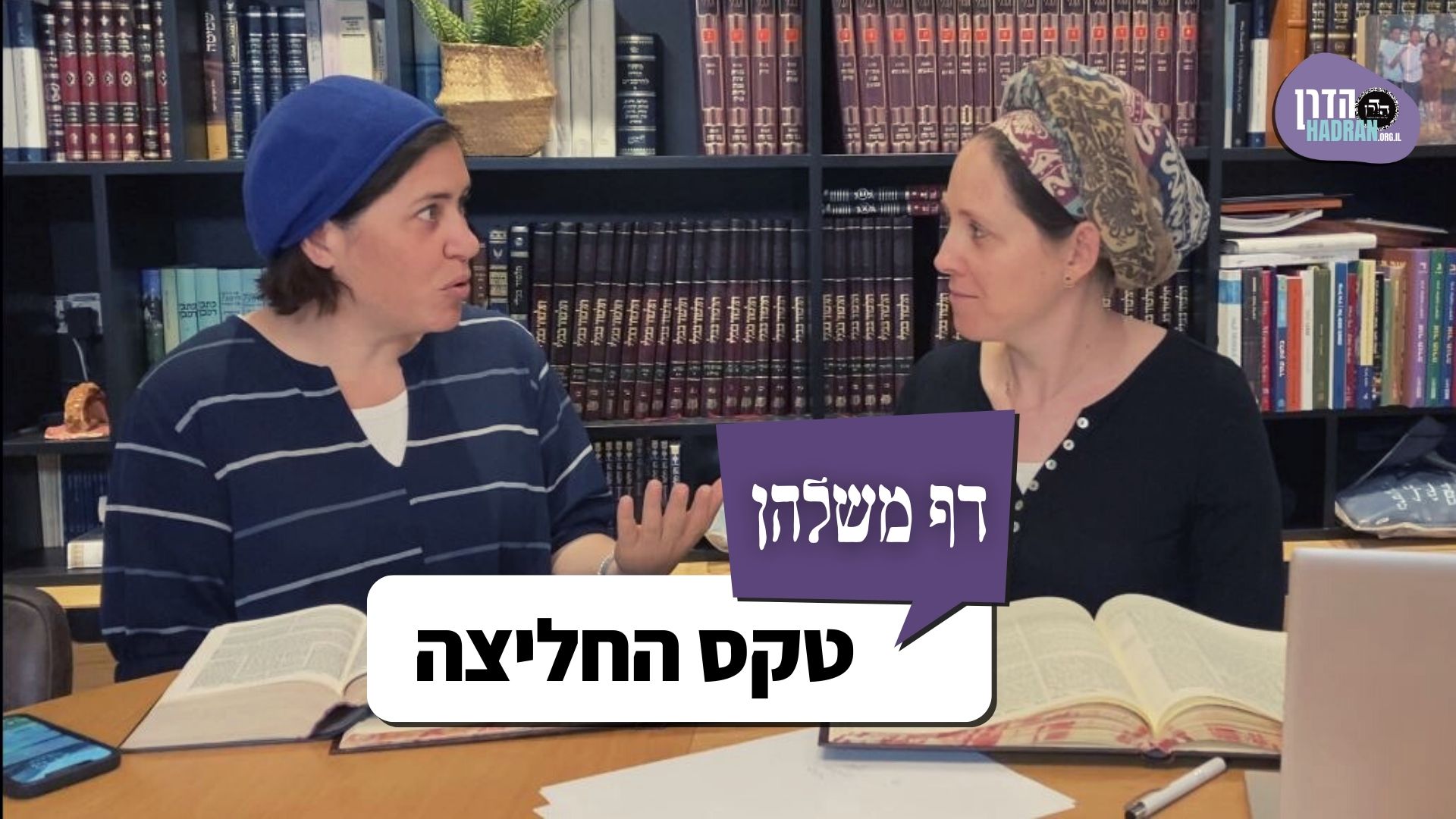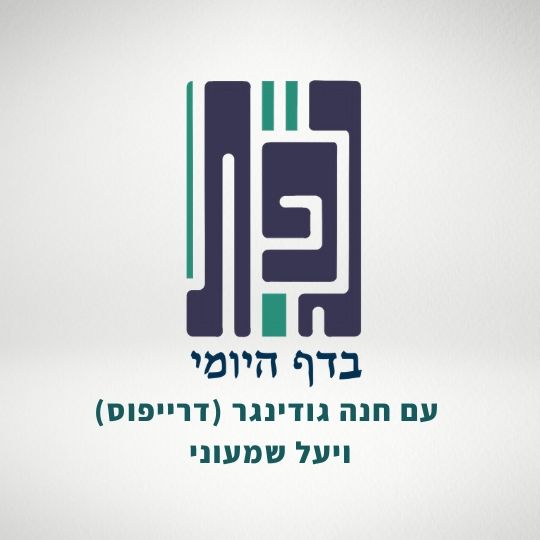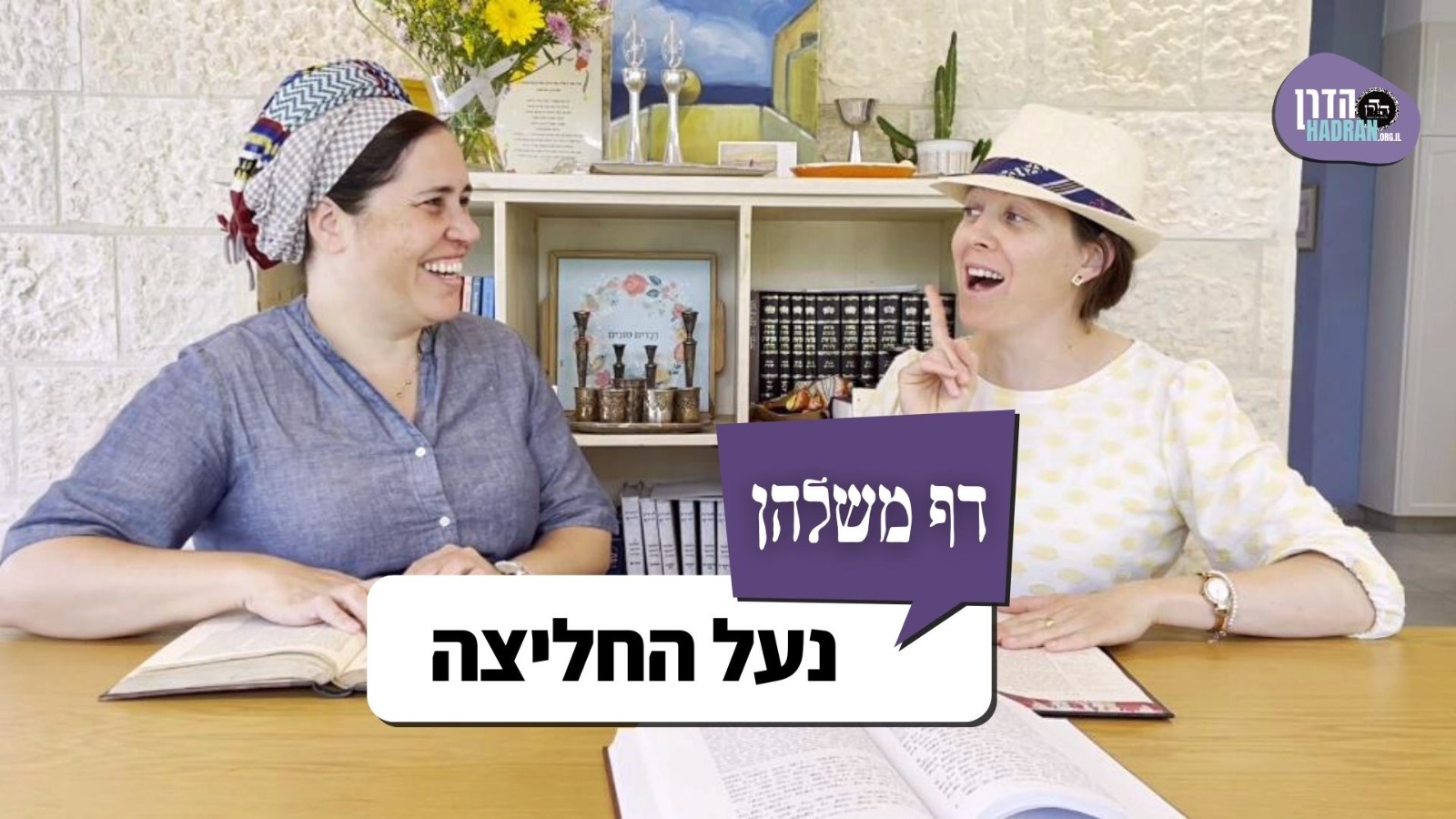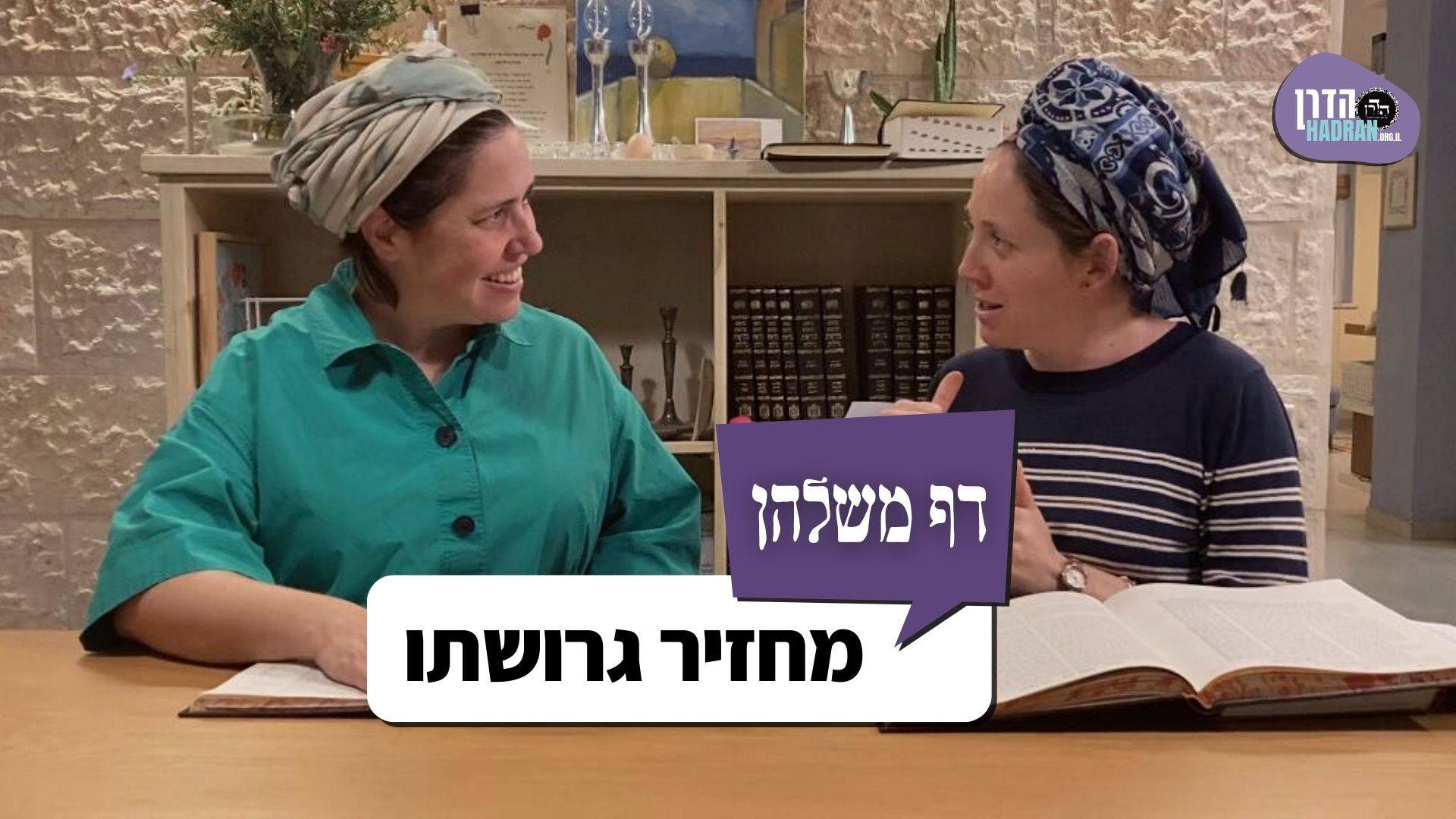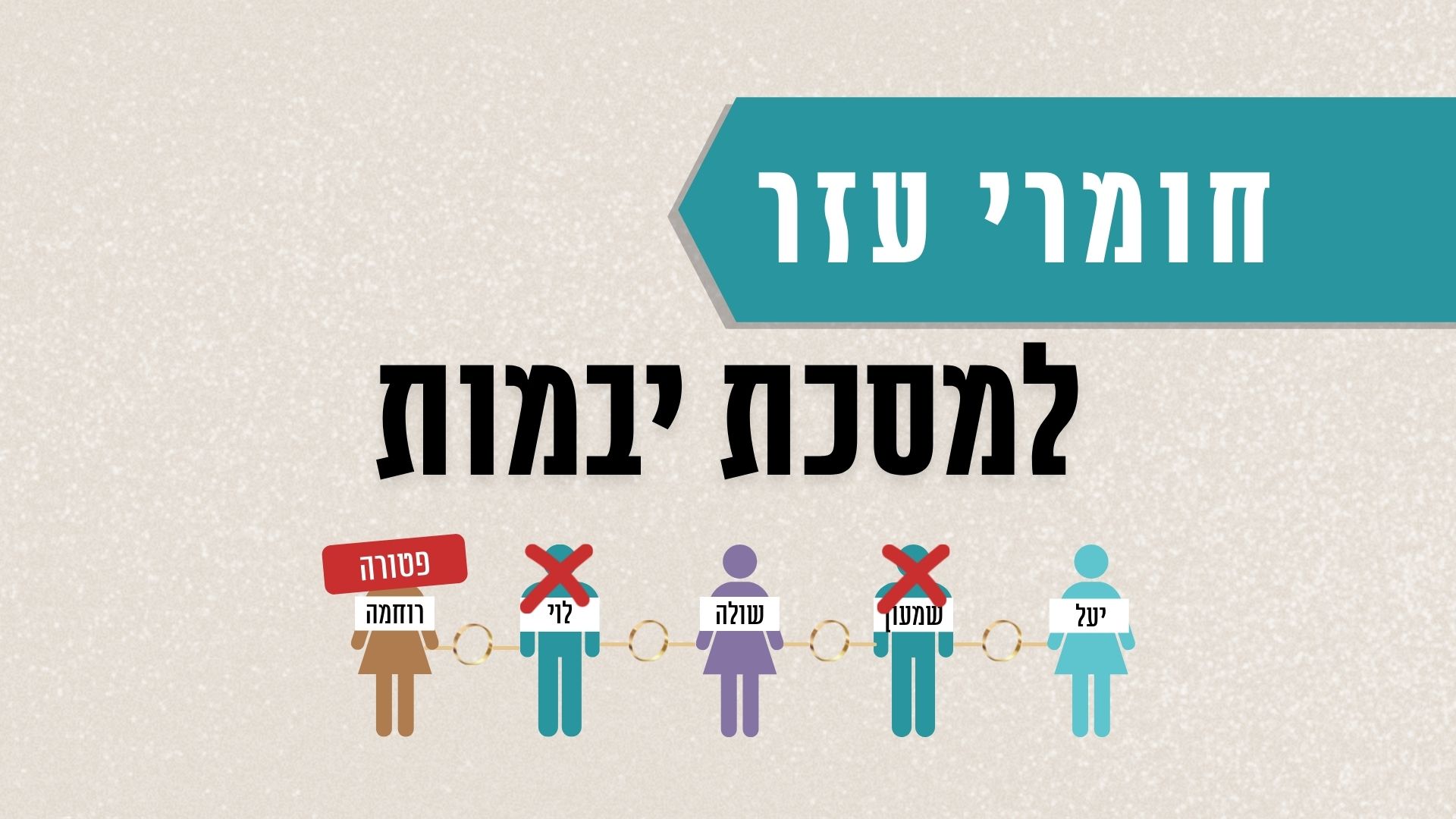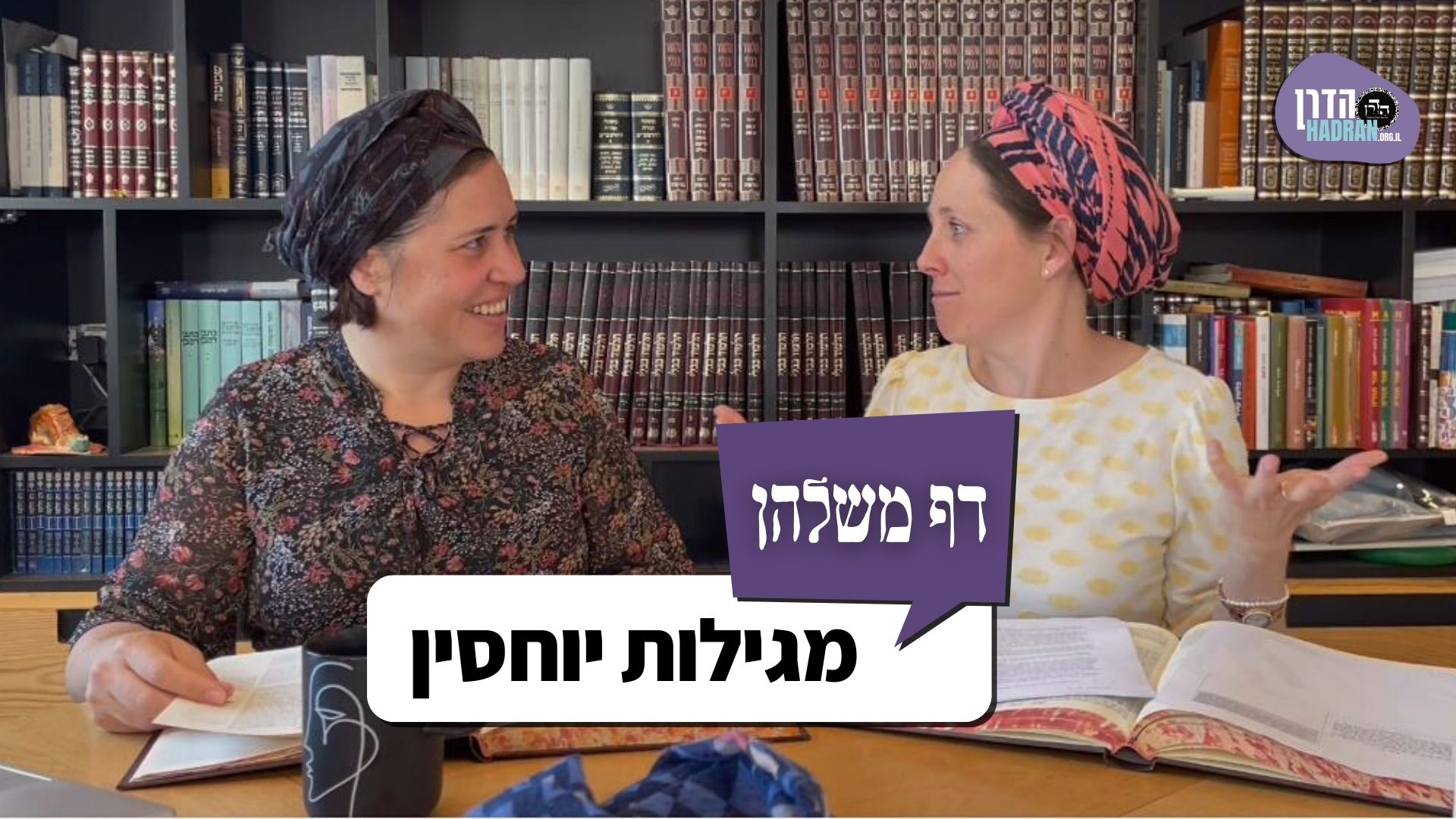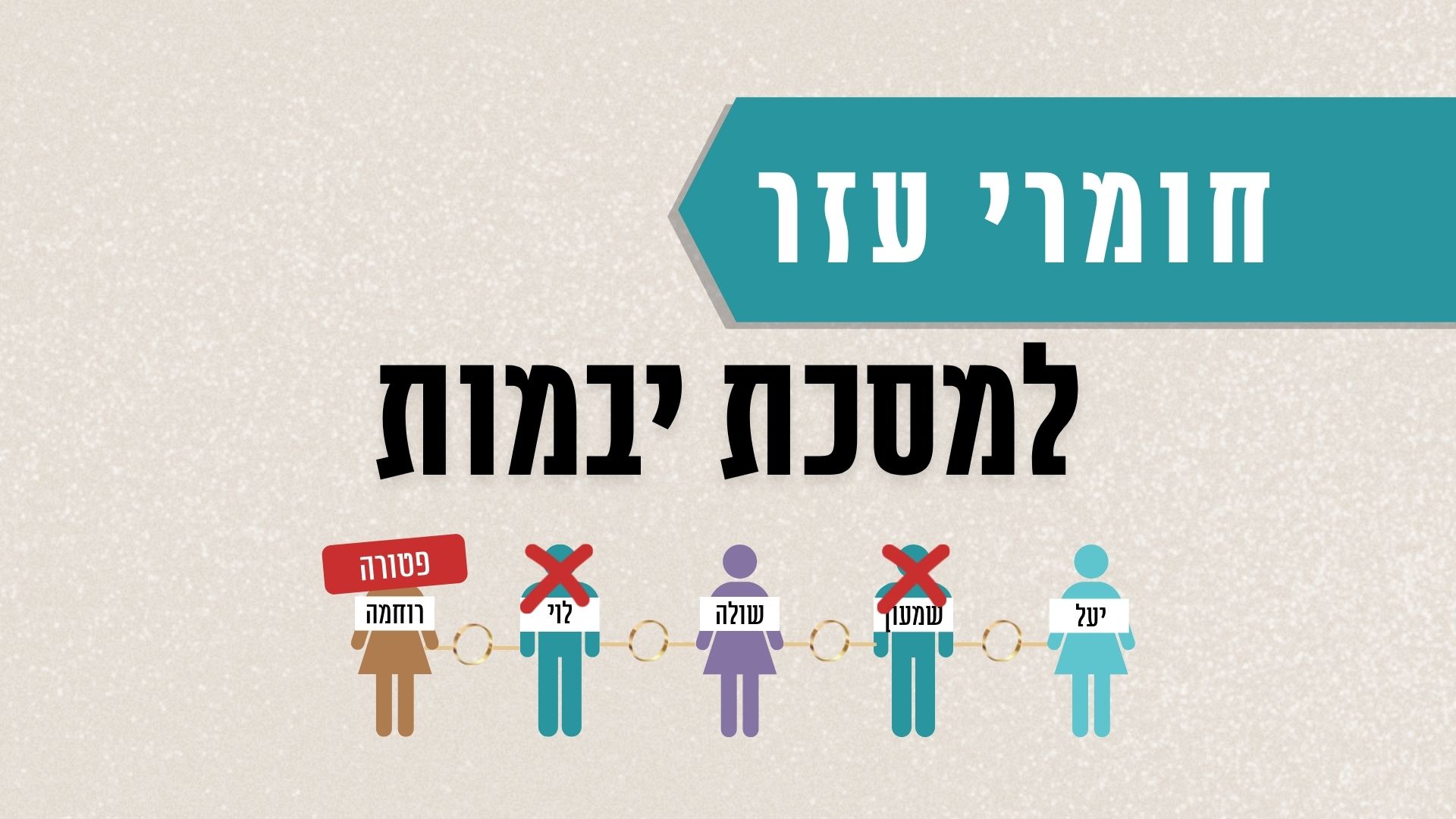יבמות קטו
דְּאִי בָּעֲיָא אָמְרָה: ״שָׁלוֹם בָּעוֹלָם״. אוֹ דִלְמָא: כֵּיוָן דְּאִיחַזְקָה — אָמְרָה בִּדְדָמֵי, וְלָא אָתֵי ״מָה לִי לְשַׁקֵּר״ וּמַרַע חֶזְקָתֵיהּ.
Because if she wanted to lie she would have said: There was peace in the world, and the court would have accepted her testimony. Or perhaps it can be argued: Since she has maintained that there was a war and this claim of hers has already been accepted, with regard to her report concerning her husband, she will say what she imagines to be the case, and the argument of: Why would I lie, does not come and undermine the established presumption that there was a war.
תָּא שְׁמַע: ״עִישְּׁינוּ עָלֵינוּ בַּיִת״, ״עִישְּׁינוּ עָלֵינוּ מְעָרָה״, ״הוּא מֵת, וַאֲנִי נִצַּלְתִּי״ — אֵינָהּ נֶאֱמֶנֶת. שָׁאנֵי הָתָם, דְּאָמַר לָהּ: כִּי הֵיכִי דִּלְדִידָךְ אִיתְרְחִישׁ נִיסָּא, לְדִידֵיהּ נָמֵי אִיתְרְחִישׁ נִיסָּא.
The Gemara cites a baraita in an attempt to resolve this dilemma. Come and hear: It was taught that if a woman comes and says: They set our house on fire and the house became filled with smoke, or: They set our cave on fire to smoke us out, and she adds: My husband died and I was saved, she is not deemed credible. In this case, she herself related the entire story, and even so her version of events is not accepted. The Gemara answers that this is no proof. There, in the case of the fire, it is different, as one says to her: Just as a miracle occurred for you and you were saved, likewise a miracle might have occurred for your husband and he too survived.
תָּא שְׁמַע: ״נָפְלוּ עָלֵינוּ גּוֹיִם״, ״נָפְלוּ עָלֵינוּ לִיסְטִים״, ״הוּא מֵת, וְנִצַּלְתִּי״ — נֶאֱמֶנֶת. הָתָם, כִּדְרַב אִידִי. דְּאָמַר רַב אִידִי: אִשָּׁה כְּלֵי זַיְינָהּ עָלֶיהָ.
Come and hear a proof from another baraita. If a woman comes and says: A group of gentiles attacked us, or: A group of bandits attacked us, and she adds: My husband died and I was saved, she is deemed credible. This indicates that her testimony is accepted due to the argument of: Why should she lie? The Gemara rejects this proof. There, in that baraita, her testimony is accepted because it stands to reason that she is speaking the truth, in accordance with the opinion of Rav Idi. As Rav Idi said: With regard to a woman, her weapons are upon her. In other words, a woman is generally not killed by thieves, because the very fact of her being a woman protects her. They would most likely rape her and not kill her. Consequently, it is reasonable to assume that she is speaking the truth.
הָהוּא גַּבְרָא דִּבְשִׁילְהֵי הִלּוּלֵיהּ אִיתְּלַי נוּרָא בֵּי (גנני) [גְּנָנֵיהּ]. אֲמַרָה לְהוּ דְּבֵיתְהוּ: ״חֲזוֹ גַּבְרַאי! חֲזוֹ גַּבְרַאי!״ אֲתוֹ, חֲזוֹ גַּבְרָא חָרוֹכָא דִּשְׁדֵי, וּפִסְּתָא דִּידָא דְּשַׁדְיָא.
§ The Gemara relates: There was a certain man who got married. At the end of his wedding a fire broke out in the bridal chamber, where the bride and groom were standing, during the ceremony. His wife screamed and said to them: Look at my husband, look at my husband! They went and saw an unrecognizable burnt man fallen down, and a palm of a hand lying there.
סָבַר רַב חִיָּיא בַּר אָבִין לְמֵימַר: הַיְינוּ ״עִישְּׁינוּ עָלֵינוּ בַּיִת, עִישְּׁינוּ עָלֵינוּ מְעָרָה״. אָמַר רָבָא: מִי דָּמֵי? הָתָם לָא קָאָמְרָה ״חֲזוֹ גַּבְרַאי, חֲזוֹ גַּבְרַאי״. וְעוֹד, גַּבְרָא חָרוֹכָא דִּשְׁדֵי, וּפִסְּתָא דִּידָא דְּשַׁדְיָא.
Rav Ḥiyya bar Avin thought to say: This is the same as the case of: They set our house on fire and the house became filled with smoke, or: They set our cave on fire to smoke us out, i.e., we cannot rely on her claim that her husband died. Rava said: Is this case comparable to those? There she did not say: Look at my husband, look at my husband. And furthermore, there is another difference: Here, there is a burnt man who has fallen down and a palm that is lying there. In other words, her statement is substantiated by facts.
וְרַב חִיָּיא בַּר אָבִין — גַּבְרָא חָרוֹכָא דִּשְׁדֵי, אֵימָא אִינִישׁ אַחֲרִינָא אֲתָא לְאַצּוֹלֵי, וַאֲכַילְתֵּיהּ נוּרָא. וּפִסְּתָא דִידָא דְּשַׁדְיָא — נוּרָא אִיתְּלַיא וְאִתְיְלִיד בֵּיהּ מוּמָא, וּמֵחֲמַת כִּיסּוּפָא אֲזַל וַעֲרַק לְעָלְמָא.
And why didn’t Rav Ḥiyya bar Avin accept her testimony? In his opinion, a burnt man who has fallen down is not conclusive proof, as one might still say: Perhaps another person came to the rescue and the fire burned him. And as for the palm lying there, perhaps the fire burned him and caused a deformity through which he lost his hand, and due to his embarrassment he went and ran away to somewhere else in the world, but he is still alive. Consequently, Rav Ḥiyya bar Avin did not want to rely upon the testimony of the wife.
אִיבַּעְיָא לְהוּ: עֵד אֶחָד בַּמִּלְחָמָה מַהוּ? טַעְמָא דְּעֵד אֶחָד מְהֵימַן — מִשּׁוּם דְּמִילְּתָא דַּעֲבִידָא לְאִיגַּלּוֹיֵי הוּא לָא מְשַׁקַּר, הָכָא נָמֵי לָא מְשַׁקַּר. אוֹ דִלְמָא: טַעְמָא דְּעֵד אֶחָד מִשּׁוּם דְּהִיא גּוּפָא דָּיְיקָא וּמִינַּסְבָא, וְהָכָא [כֵּיוָן דְּזִימְנִין דְּסָנְיָא לֵיהּ], לָא דָּיְיקָא וּמִינַּסְבָא.
§ A dilemma was raised before them: In the case of one witness who testifies to the death of someone during a war, what is the halakha? The Gemara explains the sides of the dilemma: The reason that one witness is deemed credible when he provides testimony concerning the death of a husband is because the husband being alive is a matter that is likely to be revealed, and one would not lie in a case of this kind. Here, too, one witness would not lie. Or perhaps the reason that one witness is trusted is because his account is supported by the fact that she herself is exacting in her investigation before she marries again. And here, since sometimes she hates him, and war is a situation that requires especially careful investigation and it is tempting for her to rely on the witness, she is not exacting in her investigation before she marries again, and therefore the testimony of one witness is not accepted.
אָמַר רָמֵי בַּר חָמָא: תָּא שְׁמַע, אָמַר רַבִּי עֲקִיבָא: כְּשֶׁיָּרַדְתִּי לִנְהַרְדְּעָא לְעַבֵּר הַשָּׁנָה, מְצָאַנִי נְחֶמְיָה אִישׁ בֵּית דְּלִי, וְאָמַר לִי: שָׁמַעְתִּי שֶׁאֵין מַשִּׂיאִין אֶת הָאִשָּׁה בְּאֶרֶץ יִשְׂרָאֵל עַל פִּי עֵד אֶחָד, אֶלָּא רַבִּי יְהוּדָה בֶּן בָּבָא. וְנַמְתִּי לוֹ: כֵּן הַדְּבָרִים. אָמַר לִי, אֱמוֹר לָהֶם מִשְּׁמִי: אַתֶּם יוֹדְעִים הַמְּדִינָה הַזּוֹ מְשׁוּבֶּשֶׁת בִּגְיָיסוֹת? כָּךְ מְקוּבְּלַנִי מֵרַבָּן גַּמְלִיאֵל הַזָּקֵן, שֶׁמַּשִּׂיאִין הָאִשָּׁה עַל פִּי עֵד אֶחָד.
Rami bar Ḥama said: Come and hear a resolution to this dilemma. Rabbi Akiva said: When I descended to Neharde’a in Babylonia to intercalate the year, I found there the Sage Neḥemya of Beit D’li, and he said to me: I heard that the Sages do not allow a woman to marry in Eretz Yisrael based on the testimony of one witness, apart from Rabbi Yehuda ben Bava, as the other Sages are reluctant to rely on his opinion. And I said [namti] to him: This is so. He said to me: Say to them in my name: Do you know that this country is riddled with troops? This is the tradition that I received from Rabban Gamliel the Elder, that the Sages do allow a woman to marry based on one witness.
מַאי מְדִינָה מְשׁוּבֶּשֶׁת בִּגְיָיסוֹת? לָאו, אַף עַל גַּב דִּמְדִינָה זוֹ מְשׁוּבֶּשֶׁת, כָּךְ מְקוּבְּלַנִי שֶׁמַּשִּׂיאִין עַל פִּי עֵד אֶחָד. אַלְמָא עֵד אֶחָד מְהֵימַן.
The Gemara analyzes this baraita in relation to the issue at hand. What is the significance of his comment that this country is riddled with troops? Isn’t he saying: Even though this country is riddled with troops, this is the tradition that I received, that the Sages do allow a woman to marry based on one witness, notwithstanding the war. Apparently, one witness is deemed credible in the case of a missing husband during a time of war.
אָמַר רָבָא: אִי הָכִי, מַאי שְׁנָא ״מְדִינָה זוֹ״? ״כׇּל מָקוֹם שֶׁיֵּשׁ גְּיָיסוֹת״ מִיבְּעֵי לֵיהּ! אֶלָּא אָמַר רָבָא, הָכִי קָאָמַר: אַתֶּם יוֹדְעִים שֶׁמְּדִינָה זוֹ מְשׁוּבֶּשֶׁת בִּגְיָיסוֹת, וְלָא אֶפְשָׁר לִי לְמִשְׁבַּק אִינָשֵׁי בֵיתִי וּמֵייתֵי קַמֵּי רַבָּנַן. כָּךְ מְקוּבְּלַנִי מֵרַבָּן גַּמְלִיאֵל שֶׁמַּשִּׂיאִין הָאִשָּׁה עַל פִּי עֵד אֶחָד.
Rava said: If this is how you interpret the matter, in what way is this country different from any other? In other words, why did Neḥemya of Beit D’li mention a particular place? He should have said: Any place where there are troops. Rather, Rava said: This is what he said: You know that this country is riddled with troops, and I cannot leave the members of my household and come before the Sages, due to the danger. Therefore, I cannot testify in person that this is the tradition that I received from Rabban Gamliel the Elder, that the Sages allow a woman to marry based on one witness. According to this interpretation, his statement has no bearing on the matter at hand.
תָּא שְׁמַע: מַעֲשֶׂה בִּשְׁנֵי תַּלְמִידֵי חֲכָמִים שֶׁהָיוּ בָּאִין עִם אַבָּא יוֹסֵי בֶּן סִימַאי בִּסְפִינָה, וְטָבְעָה, וְהִשִּׂיא רַבִּי נְשׁוֹתֵיהֶן עַל פִּי נָשִׁים. וְהָא מַיִם כְּמִלְחָמָה דָּמוּ. וְנָשִׁים, אֲפִילּוּ מֵאָה — כְּעֵד אֶחָד דָּמוּ, וְקָתָנֵי: הִשִּׂיא!
The Gemara continues. Come and hear a baraita that relates an incident involving two Torah scholars who were coming with Abba Yosei ben Simai by boat, and that boat sank. And Rabbi Yehuda HaNasi allowed their wives to marry based on the testimony given by women that these men were dead. But consider: Water, i.e., the sea, is like war with respect to this halakha, as there is room in both cases for conjecture and error. And women, even one hundred of them, are considered as one witness with regard to their testimony about a husband’s death. And yet the baraita taught: He allowed them to marry, which indicates that one may rely on one witness even during a war.
וְתִסְבְּרָא? מַיִם שֶׁאֵין לָהֶם סוֹף נִינְהוּ, וּמַיִם שֶׁאֵין לָהֶם סוֹף — אִשְׁתּוֹ אֲסוּרָה. אֶלָּא הֵיכִי דָּמֵי, דְּאָמְרִי: אַסְּקִינְהוּ קַמַּן
The Gemara rejects this proof. And how can you understand it that way? Apparently, the women testified only that the boat sank, and this is a case of an endless body of water, as the boat sank at sea in a spot from which it is impossible to see the shore. And the halakha is that if a man was on a boat that sank in an endless body of water his wife is prohibited to marry, as there is no proof that he actually drowned and didn’t emerge from the water on a different shore. Rather, one must say: What are the circumstances? That those women said: Those drowned men were brought up before us
וַחֲזֵינְהוּ לְאַלְתַּר, וְקָאָמְרִי סִימָנִין. דְּלָאו עֲלַיְיהוּ סָמְכִינַן, אֶלָּא אַסִּימָנִים.
and we saw them immediately when they came out of the water, and the women stated distinguishing marks that identified these people. As, in this case we do not rely upon the women, but upon the distinguishing marks.
הָהוּא גַּבְרָא דְּאַפְקֵיד שׁוּמְשְׁמֵי גַּבֵּי חַבְרֵיהּ, אֲמַר לֵיהּ: הַב לִי שׁוּמְשְׁמַי. אֲמַר לֵיהּ: שְׁקַילְתִּינְהוּ: וְהָא כֵּן וְכֵן הָוַיִין, וּבְחָבִיתָא רַמְיִין. אֲמַר לֵיהּ: דִּידָךְ שְׁקַלְתִּינְהוּ, וְהָנֵי — אַחֲרִינֵי נִינְהוּ.
§ The Gemara relates: There was a certain man who deposited sesame plants with his friend. Sometime later he said to him: Give me the sesame plants. The friend said to him: You already took them. The owner replied: But they were of such-and-such an amount, and placed in a barrel; go and check that barrel and you will see that I am right. The bailee said to him: You took your sesame plants, and these in the barrel at my house are other ones.
סְבַר רַב חִסְדָּא לְמֵימַר: הַיְינוּ שְׁנֵי תַּלְמִידֵי חֲכָמִים, וְלָא אָמְרִינַן: הָנָךְ אֲזַלוּ לְעָלְמָא, וְהָנֵי אַחֲרִינֵי נִינְהוּ.
The case came before the Sages for a ruling. Rav Ḥisda thought to say: This situation is the same as the situation involving the two Torah scholars who drowned, when they used distinguishing marks to identify them. And we do not say in that case: Those men went elsewhere in the world, and these men who floated up are different people. Here too one may rely upon the distinguishing marks of the sesame plants given by the owner, and there is no reason to think that these sesame plants are different ones.
אֲמַר לֵיהּ רָבָא: מִי דָּמֵי? הָתָם, קָאָמְרִי סִימָנִים. הָכָא, שׁוּמְשְׁמֵי מַאי סִימָנָא אִית לְהוּ? וּדְקָאָמַר ״כֵּן וְכֵן הָוַיִין״ — אֵימַר חוּשְׁבָּנָא אִיתְרְמִי.
Rava said to Rav Ḥisda: Is it comparable? There they said distinguishing marks that identified the victims. Here, in the case of sesame plants, what distinguishing marks might they have, by which they could be identified? And as for that which he said: They were of such-and-such an amount, one can say it happened by chance that this second time it was the same amount, and there is no proof that these are the same sesame plants.
אֲמַר לֵיהּ מָר קַשִּׁישָׁא בַּר רַב חִסְדָּא לְרַב אָשֵׁי: וּמִי חָיְישִׁינַן שֶׁמָּא פִּינָּן? וְהָתְנַן: מָצָא כְלִי וְכָתוּב עָלָיו קוֹף — קׇרְבָּן, מֵם — מַעֲשֵׂר, דָּלֶת — דִּמּוּעַ, טֵית — טֶבֶל, תָּיו — תְּרוּמָה. שֶׁבִּשְׁעַת הַסַּכָּנָה הָיוּ כּוֹתְבִין תָּיו תַּחַת תְּרוּמָה!
With regard to the same issue, Mar Kashisha, son of Rav Ḥisda, said to Rav Ashi: And are we concerned that perhaps the one guarding the plants moved them from their place? But didn’t we learn in a mishna (Ma’aser Sheni 4:11): If one found a vessel on which the letter kuf was written, all objects inside the vessel are designated for a korban, an offering; if the letter mem was written on it, it is ma’aser, tithes; if it was the letter dalet, it is dimua, a mixture of teruma and non-sacred produce; if tet, it signifies tevel, untithed produce; and finally, if it is a tav, it indicates teruma. As during a time of danger, i.e., religious persecution against Jews, they would write, for example, tav instead of teruma. In this case, no concern is expressed that someone might have moved the teruma from that vessel to somewhere else.
אֲמַר לֵיהּ רָבִינָא לְרַב אָשֵׁי: וְלָא חָיְישִׁינַן שֶׁמָּא פִּינָּן? אֵימָא סֵיפָא, רַבִּי יוֹסֵי אוֹמֵר: אֲפִילּוּ מָצָא חָבִית וְכָתוּב עָלֶיהָ תְּרוּמָה — הֲרֵי אֵלּוּ חוּלִּין, שֶׁאֲנִי אוֹמֵר: אֶשְׁתָּקַד הֲוָה מָלֵא תְּרוּמָה, וּפִינָּהּ!
In response to this claim, Ravina said to Rav Ashi: And aren’t we concerned that perhaps someone moved the teruma from their place? Say the latter clause of that same mishna Rabbi Yosei says: Even if one found a barrel on which the full word teruma was written, these contents are non-sacred. As I say: Last year it was full of teruma, and someone removed the contents and replaced them with non-sacred produce. This proves that the possibility that someone moved the original contents is taken into consideration.
אֶלָּא: דְּכוּלֵּי עָלְמָא חָיְישִׁינַן שֶׁמָּא פִּינָּן, וְהָכָא בְּהָא קָמִיפַּלְגִי. מָר סָבַר: אִם אִיתָא דְּפִינָּהוּ — מִיכְפָּר הֲוָה כָּפַר. וְאִידַּךְ: אֵימַר אִישְׁתְּלוֹיֵי אִישְׁתְּלִי. אִי נָמֵי, לְפַנְחַיָּא שַׁבְקֵיהּ.
Rather, say as follows: Everyone agrees that we are concerned that perhaps someone moved the contents of a container from their place, and here, with regard to the marked vessels, they disagree about this issue: The Sage who claims that one may rely on the inscription holds that if it is so, that he moved the teruma, he would have erased the inscription. And the other Sage, Rabbi Yosei, responds that one can say he forgot to do so. Alternatively, he left the label to preserve [panaḥya] the contents, so that people would mistakenly think that it contained teruma and would refrain from taking the produce.
יִצְחָק רֵישׁ גָּלוּתָא, בַּר אֲחָתֵיהּ דְּרַב בִּיבִי, הֲוָה קָאָזֵיל מִקּוּרְטָבָא לְאַסְפַּמְיָא, וּשְׁכֵיב. שְׁלַחוּ מֵהָתָם: יִצְחָק רֵישׁ גָּלוּתָא, בַּר אֲחָתֵיהּ דְּרַב בִּיבִי, הֲוָה קָאָזֵיל מִקּוּרְטָבָא לְאַסְפַּמְיָא, וּשְׁכֵיב. מִי חָיְישִׁינַן לִתְרֵי יִצְחָק, אוֹ לָא? אַבָּיֵי אָמַר: חָיְישִׁינַן. רָבָא אָמַר: לָא חָיְישִׁינַן.
§ The Gemara relates a story that deals with the permission of a woman to remarry. Yitzḥak the Exilarch, son of the sister of Rav Beivai, was walking from Cortva to Spain and died along the way. They sent this message from Spain: Yitzḥak the Exilarch, son of the sister of Rav Beivai, was walking from Cortva to Spain and died. The Gemara asks: Are we concerned about the possibility of two men named Yitzḥak or not? Perhaps there is someone else with the same name, and therefore the mention of his name is not a sufficiently distinguishing mark. Abaye said: We are concerned about this possibility. Rava said: We are not concerned.
אָמַר אַבָּיֵי: מְנָא אָמֵינָא לַהּ, דְּהָהוּא גִּיטָּא דְּאִשְׁתְּכַח בִּנְהַרְדְּעָא וּכְתִיב: בְּצַד קְלוֹנְיָא מָתָא אֲנָא אַנְדְּרוֹלִינַאי נְהַרְדָּעָא פְּטַרִית וְתָרֵכִית יָת פְּלוֹנִית אִנְתְּתִי. וְשַׁלְחַהּ אֲבוּהּ דִּשְׁמוּאֵל לְקַמֵּיהּ דְּרַבִּי יְהוּדָה נְשִׂיאָה. וּשְׁלַח לֵיהּ: תִּיבָּדֵק נְהַרְדְּעָא כּוּלָּהּ.
Abaye said: From where do I say my reasoning that there might be another man with the same name? As a certain bill of divorce was found in the city of Neharde’a, and this passage was written on it: On the colonial [kelonya] side of the city, I, Androlinai of Neharde’a, excused, sent away, and divorced my wife so-and-so. Androlinai’s wife requested permission to remarry based on this bill of divorce, but they did not know if he was the man who gave the divorce or if it was given by another man of the same name. And the father of Shmuel sent this question before Rabbi Yehuda Nesia in Eretz Yisrael. And Rabbi Yehuda Nesia sent a message to him: All of Neharde’a must be examined, to see whether there is another man by that name. This shows that one must be concerned that there might be two people with the same name.
וְרָבָא אָמַר: אִם אִיתָא — ״יִבָּדֵק כׇּל הָעוֹלָם״ מִיבְּעֵי לֵיהּ?! אֶלָּא מִשּׁוּם כְּבוֹדוֹ דַּאֲבוּהּ דִּשְׁמוּאֵל הוּא דִּשְׁלַח הָכִי.
And Rava said: This story provides no proof. If it is so, that there were grounds to suspect that someone else of the same name wrote the bill of divorce, Rabbi Yehuda Nesia should have said: The entire world must be examined, in case there is someone else with the same name somewhere. Since he did not say this, evidently there was no legitimate reason for this suspicion at all. Why, then, did Rabbi Yehuda Nesia send instructions to examine all of Neharde’a? Rather, Rava added, it was due to respect for the father of Shmuel that he sent this message. He did not want to write explicitly that Shmuel’s father had inquired unnecessarily, and therefore he wrote his reply in a manner which indicated his partial agreement with the concern.
אָמַר רָבָא: מְנָא אָמֵינָא לַהּ — דְּהָנְהוּ תְּרֵי שְׁטָרֵי דְּנָפְקִי בְּמָחוֹזָא וּכְתִיב בְּהוּ: חָבֵי בַּר נַנַּאי וְנַנַּאי בַּר חָבֵי, וְאַגְבִּי בְּהוּ רָבָא בַּר אֲבוּהּ זוּזֵי. וְהָא חָבֵי בַּר נַנַּאי וְנַנַּאי בַּר חָבֵי בְּמָחוֹזָא שְׁכִיחִי טוּבָא. וְאַבָּיֵי?
Rava said: From where do I say my reasoning that we are not concerned about two people with identical names? As there were two promissory notes produced in Meḥoza, and these names of the creditors were written on them: Ḥavai bar Nanai and Nanai bar Ḥavai, and Rava bar Avuh collected dinars for them with these promissory notes, without concerning himself with the possibility that they might be referring to other people. And the names Ḥavai bar Nanai and Nanai bar Ḥavai are very common in Meḥoza, i.e., there are certainly other people with these names, and yet he was not worried about this matter. The Gemara asks: And Abaye, how does he answer this proof?

